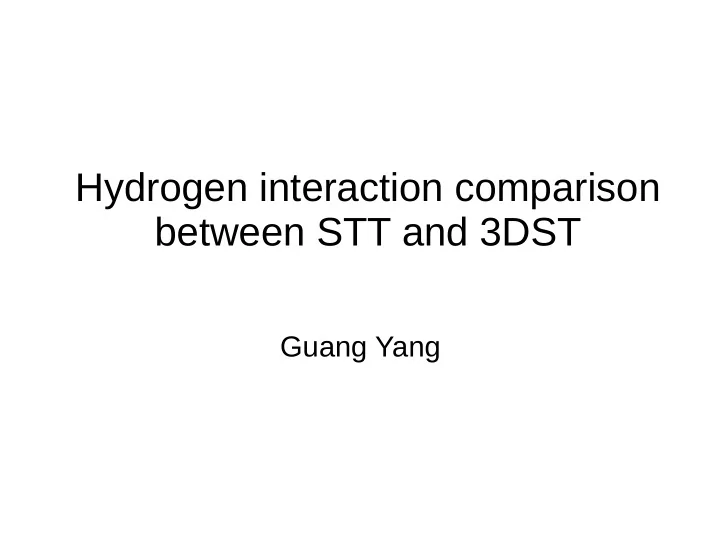

Hydrogen interaction comparison between STT and 3DST Guang Yang
STT - STT claims they can measure nuclear effect using C3H6 as radiator foil. - ~ 12% hydrogen mass in STT. - Need graphite target for subtraction.
3DST - Same thing, only difference is material and tracking efficiency. - ~8% hydrogen in 3DST comparing to 12% in STT by mass. - STT does not provide simulated tracking efficiency, they claim 2 mrad angular resolution and ~5% momentum resolution(mainly MCS)
Comparison without smearing - I use realistic scintillator and STT geometries. - Same number of input events. - STT mainly more hydrogen interactions. (~12% in mass than ~8% in mass) 3DST STT Red - hydrogen Black - Carbon
Comparison with smearing - STT: they claim 2 mrad angular and 5% momentum resolutions - 3DST: 20 mard angular resolution (roughly from Kevin’s study ) 20% momentum resolution (roughly from Chang Hwan’s study) - Bear in mind: we use much more realistic simulations! 3DST STT Red - hydrogen Black - Carbon
Recommend
More recommend